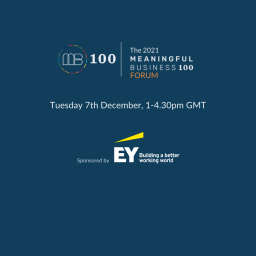For Black History Month, we are highlighting the work of GRID 202 Partners – a financial advisory firm using investment to address racial injustice.
The need for racial equity investing has never been more profound. Racial inequalities that have been institutionalised and perpetuated by our criminal justice system have been sent into overdrive by the COVID-19 crisis. People of colour have taken a far greater financial hit, face greater unemployment, and aren’t seeing the same recovery as those not experiencing systemic racism. The number of Black-owned businesses declined by 41% between February and April 2020, compared with a 17% decline among White-owned businesses (CNBC).
The financial disadvantages faced by people of colour have been imposed and evolved over centuries. This is best illustrated by the racial wealth gap. Black and Latino workers are paid less than their white counterparts at almost every educational level. They also have lower savings and investments, lower home equity, and lower inherited wealth – because they have less money to work with.
How can businesses take steps to counter this consequence and use their resources to fight racism, and inequality of opportunity, in our economic system?
By advising individuals and partnering with endowments, foundations and other institutions, GRID 202 Partners, looks to align investment decisions and financial planning with social and moral values. They look to “generate returns with impact and discipline” – with a specific focus on racial equity.
As Managing Partner Keith Beverly emphasises:
“Frankly, our target clients are rich people who care about poor people…fundamentally, the vast majority are households with financial means who are working in some way to make our society more equitable.”

Keith Beverly, Founder & Managing Partner, GRID 202 Partners
They are the first to recognise the challenges of racial equity investing. Namely that investors today are faced with a “set of imperfect solutions” – especially when it comes to issues like racial demographic data, screening methodologies, incorporating racial equity into investment decisions and exclusionary approaches.
In response to this, GRID formulated three strategic pillars:
1 – Recognising racial diversity as an alpha generator. Companies that are favorably positioned to attract and cultivate diverse talent will have an edge in their respective markets. Firms that lead the way on racial equity will outperform and capture market share from those who do not keep pace.
2 – Centring and elevating voices of women of colour. This group face a more arduous task in integrating and advancing within the workplace than any other. By uncovering and illuminating the challenges they face, investment can be directed to support them and improve racial equity for all.
3 – Providing access for households of colour to credentialed fiduciaries and outperforming investment managers. This is a critical step in closing the racial wealth gap and enabling educational, entrepreneurial, housing, healthcare and other opportunities.

Our Knowledge Partner, the Responsible Business Initiative for Justice, is honoured to partner with the GRID 202 Partners team as they lead the way and pioneer new approaches to tackling injustice through racial equity lens investing. Read more about their work here.




















